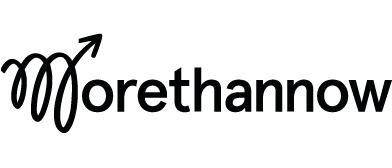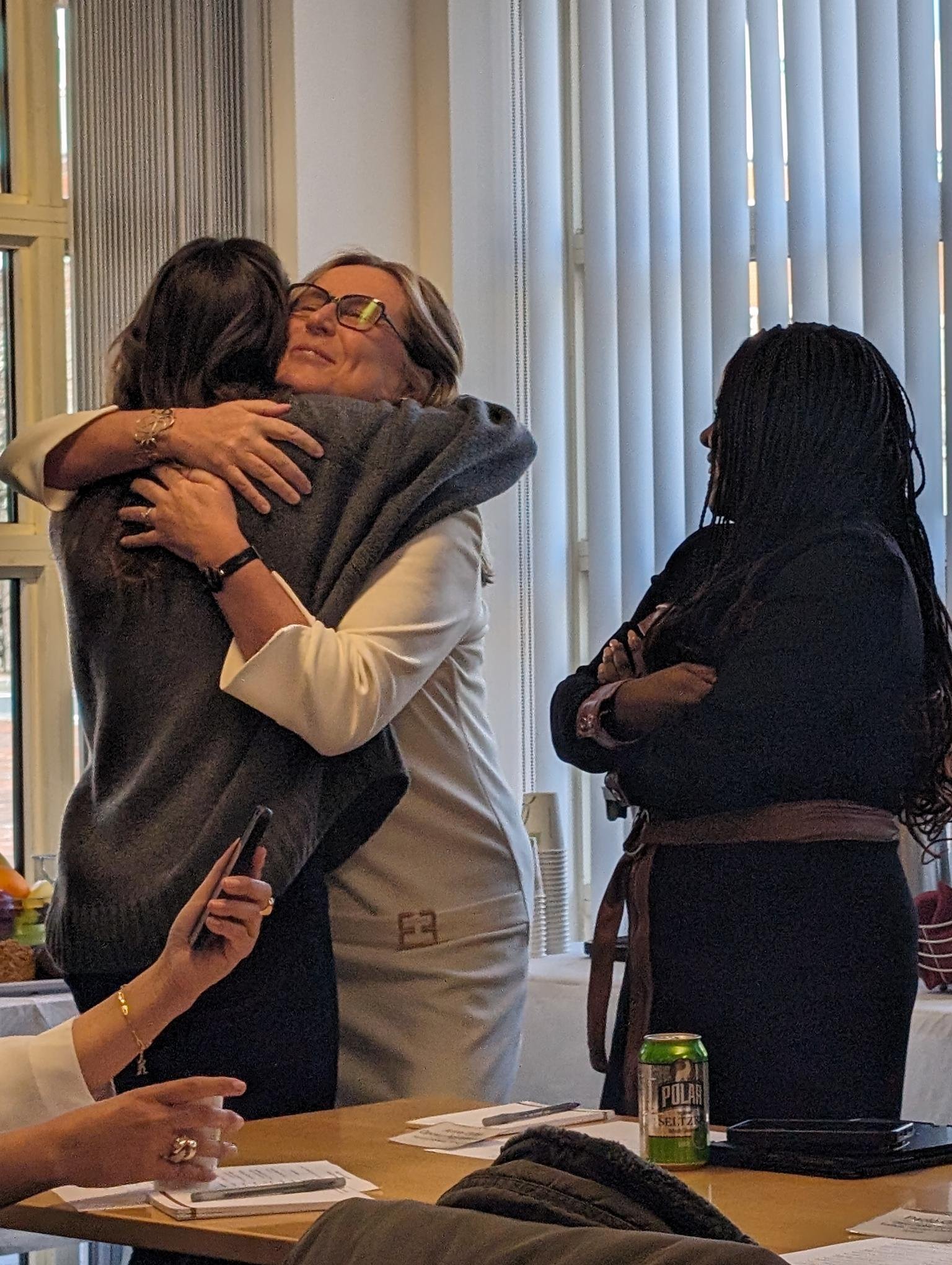Focused Diversity Training - A Scientific Breakthrough
The MoreThanNow team members Katryn Wright and Priya Gill with lead authors Prof. Edward Chang from Harvard Business School and Cansin Arslan from Exeter University.
In 2017, MoreThanNow began a long-term search for an alternative to Unconscious Bias Training. Back then the situation was bleak: by best estimates, organisations were collectively spending £billions on this type of training every year, while the available evidence suggested it would do little to tackle, or even worsen, decision biases in the workplace.
Today, we are proud to share a behaviourally-informed alternative, designed in collaboration with an academic team from Exeter University, Harvard Kennedy School and Harvard Business School, and as of 23rd January published in Science; one of the most prestigious scientific journals in the world.
The short story is below with thanks and credit to our academic collaborators Cansin Arslan, Edward Chang, Oliver Hauser, Siri Chilazi and Iris Bohnet. Together, we ask you not just to replicate our work, but engage in the science, build on our learnings and put your interventions to the test. As you will hear, there are still many open questions and new breakthroughs to discover. We finish this article with an opportunity for you to root them out with our team!
Focused diversity Training
The idea behind Focused Diversity Training was simple: we knew we couldn’t expect to train bias out of people’s minds through generic e-learning programmes or one-day workshops. But could we make a consequential decision or experience fairer or more inclusive by exposing people to a short, sharp diversity training module?
Conceptually, you can imagine this idea in many ways: maybe you see a 30-second clip about the importance of share of voice just before you join a digital meeting; maybe a facilitator offers ten minutes of bias education before a performance calibration session; or maybe a manager watches a five-minute video training about fair decision making before CV screening or promotion evaluations. The point is to identify priority moments where bias might have a critical impact in the workplace, and then interrupt it there and then.
This thinking was not necessarily novel when we started this study in 2021, but to our knowledge, it had not been robustly tested with experimental research. It was critical to us to learn the lessons of the past, and remember that just because an idea sounds effective that does not make it so. With that in mind, we embarked on one of the most ambitious experiments in MoreThanNow history.
The randomised controlled experiment
As with all our work, we partnered with a large, global organisation to carry out our evaluation. The moment under our spotlight was CV screening, where managers make a series of fast decisions that are vulnerable to bias. Across 9 months, we randomly allocated 10,000 hiring managers across global locations to one of three treatment groups.
Control Group – Business As Usual
Treatment Group 1 – Focused Diversity Training: DEI Specific
Treatment Group 2 – Focused Diversity Training: Effective Teams
The training was very similar in both treatment groups, with a subtle but potentially crucial difference: the evidence for generic Unconscious Bias Training suggested one reason for its lack of effectiveness was backlash from majority / overrepresented groups. We wanted to see whether a version that specifically mentioned thinking about diversity and representation was more or less impactful than one focused on building effective teams by hiring for a range a of skills, experiences and backgrounds.
Other than this difference, both trainings were the same – a seven-minute diversity training video specific to recruitment and CV screening. This was scripted and designed by our team, but importantly delivered by three messengers from inside the organisation: a board member, the head of talent acquisition, and a recruiter. The trainings were delivered to hiring managers at the moment that they were moved to CV screen in the organisation’s Application Tracking System.
the results
Both videos worked better than the previous business as usual approach, which contrasted positively with the limited impact of Unconscious Bias Training. It seemed the timeliness of the intervention was important. But surprisingly to some members of our team, it was the diversity training video that was particularly effective – globally, it led to a 12% increase in women being shortlisted, a 13% increase in shortlisting for non-nationals and a 20% increase in non-nationals being hired.
The effects of diversity training were even greater in higher income countries and in countries with higher levels of gender equality, which may suggest this intervention worked particularly well when a solid baseline of support for equality has been achieved. In the country where the company is headquartered, women were 32% more likely to be hired and non-nationals 51%.
the next steps
We know there are many opportunities to make processes in organisations fairer, from CV screening to performance evaluations to who gets heard in meeting rooms. For many years, organisations have tried to combat this workplace discrimination with Unconscious Bias Training, which did not have its intended impact. Our Focused Diversity Training offers a promising alternative, that if replicated across different organisations, decisions and behaviours, could have a meaningful impact on making our organisations fairer for all.
However – as a team committed to scientific principles – we also don’t want to go too far too fast with those broader conclusions. Turning that promise into reality requires more research that we would group in three priorities:
Managing Director Katryn Wright with Prof. Iris Bohnet at Harvard Kennedy School.
Replicating the results from the study above in more organisations and with additional demographic data: were the results unique to this company, who have expressed high levels of commitment to DEI, or would it work anywhere? Would we have similarly positive effects on other marginalised or historically disadvantaged groups?
Testing the concept of Focused Diversity Training on other priority moments, to see if the effects hold in similar ways – this might include formal people decisions around performance, promotion and pay, or inclusive experiences like team meetings, 121s and work allocation.
Optimising the effect of Focused Diversity Training, by varying how it is designed. For instance, how much training detail is required? Who exactly should deliver the training? What are the core messages? In short, how do we continue to refine the modules so that they have the most impact possible.
We urgently need more organisations and DEI leaders to get involved in this research, and collectively push for better evidence and shared learning. The publication of our study in Science is a brilliant first step, but it only amplifies our ambition to ask harder questions and discover more. Join that journey below:



